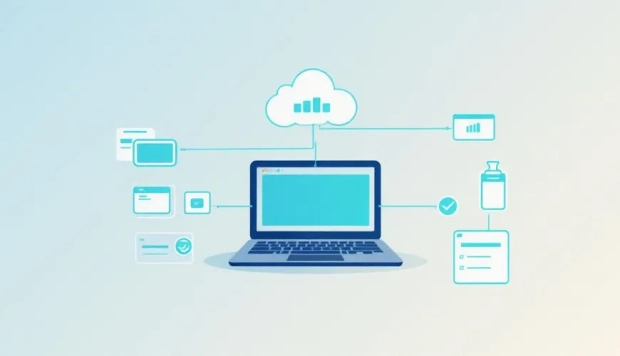How to Improve Team Performance – Maximize Results & Team Effectiveness

Every organization strives for sustainable growth and high performance. Strong teams work efficiently, communicate openly, and share a unified vision. When people collaborate effectively, productivity and creativity naturally increase. However, even the most skilled teams need guidance, structure, and motivation to reach their full potential.
Improving team performance requires teams to work diligently, align goals, and foster trust. Leaders must ensure that every member feels respected and valued by setting clear expectations, offering constructive feedback, and recognizing achievements.
With the right strategies in place, teams can overcome challenges, boost morale, and maintain high output over time. Understanding the fundamentals helps build stronger connections within teams and enables better results. The following sections examine proven methods for optimizing team effectiveness and achieving a competitive advantage.
Understanding Team Performance – Key Drivers
Recognizing the core elements that influence team productivity is the first step toward mastering the art of improving team performance. High-performing teams are built on more than just talent - they rely on shared purpose and mutual accountability. Effective teams understand their shared goals, communicate openly, and adapt quickly to challenges.
Strategy defines direction, clarity ensures focus, and collaboration fuels innovation. These qualities form a solid foundation for sustained progress. Understanding what drives high-performing teams enables leaders to identify strengths, address weaknesses, and cultivate a culture where every member contributes to shared success and the organization's long-term vision.
Key drivers of team performance:
- Strong Leadership: Effective leaders provide guidance, model accountability, and inspire their teams to achieve their goals.
- Open Communication: Transparent discussions prevent misunderstandings and foster trust.
- Defined Roles and Responsibilities: Each team member understands their contribution and value.
- Mutual Trust and Respect: Respect creates a safe environment for creativity and risk-taking.
- Shared Goals and Vision: Everyone works toward common objectives with clarity and purpose, fostering a unified approach.
- Continuous Feedback: Regular evaluations help identify strengths and areas for growth.
- Adaptability: Teams that embrace change and learn from setbacks perform better over time.
Team performance improves naturally when these drivers align. Each factor contributes to better problem-solving and collective achievement. Understanding how to improve team performance means creating synergy where every member's strengths complement those of others. Organizations that prioritize communication and ongoing improvement build teams that perform at their best and adapt to any challenge. Empowered teams are the foundation of sustainable success and measurable results.
Working as a Team – Foundation for Success
The ability to succeed in any organization starts with understanding the importance of working as a team. Collaboration fuels innovation, strengthens problem-solving, and helps individuals achieve more collectively than they could alone. When people align around shared goals, productivity and morale rise naturally.
Core principles of effective teamwork:
- Clear Communication: Open and honest dialogue ensures that everyone understands expectations, progress, and challenges.
- Defined Roles: Each team member understands their responsibilities and the contribution they make to the team's success.
- Shared Accountability: Everyone takes ownership of both individual tasks and collective outcomes.
- Mutual Support: Team members help each other succeed, share knowledge, and collaborate generously.
- Conflict Resolution: Proactively addressing disagreements prevents tension from escalating. Encouraging open dialogue and fair mediation ensures all voices are heard while maintaining focus on shared goals.
- Celebrating Success: Recognizing individual and team accomplishments reinforces positive behaviors, boosts morale, and strengthens unity. Regularly celebrating milestones motivates members to maintain high performance.
- Leadership and Guidance: Effective leaders provide mentorship and support, model accountability, and encourage collaboration. Leaders empower members to contribute confidently toward collective success.
Mastering the art of working as a team requires effort and commitment from every member. Teams perform at their peak when collaboration and communication come together, making each person's contribution a vital part of the collective effort that drives innovation and success. Organizations that nurture these principles build more cohesive teams capable of overcoming challenges, achieving goals, and creating a lasting culture of excellence and shared accomplishment through performance consulting training.
Ways of Working – Optimizing Team Processes
Establishing effective work methods is crucial for teams to boost productivity and collaboration. Well-defined workflows minimize confusion, align goals, and ensure everyone contributes effectively. Teams that adopt structured yet flexible processes tend to perform better and adapt more quickly to changing demands.
Effective ways to work for team success:
- Agile Methodology: Encourages flexibility, rapid feedback, and continuous improvement through iterative cycles.
- Cross-Functional Collaboration: Combines diverse skills and perspectives to solve complex problems more effectively.
- Regular Check-Ins: Promotes accountability and progress tracking through consistent team meetings.
- Digital Tools and Automation: Streamlines coordination, communication, and data sharing across the team.
- Knowledge Sharing Platforms: Encourage learning, documentation, and innovation by making information accessible.
- Clear Documentation: Ensures processes, decisions, and learnings are captured for future reference.
- Continuous Evaluation: Identifies process bottlenecks and drives ongoing refinement and improvement.
Implementing efficient work practices creates a balanced environment where structure meets adaptability - a vital element in understanding how to improve team performance effectively. This empowers team members to communicate clearly, stay organized, and remain focused on their goals. When workflows are optimized, teams spend less time on repetitive tasks and more time innovating.
Consistent feedback and agile strategies maintain momentum, even during demanding projects. By refining their ways to work, organizations cultivate a culture of continuous improvement that encourages collaboration and promotes efficiency. This approach ensures that everyone contributes meaningfully to the team's shared success and long-term growth.
Team Effectiveness – Measuring and Improving
Team effectiveness refers to the degree to which a group collaborates, communicates, and achieves its objectives. Understanding team effectiveness ensures that collective efforts yield measurable results and foster sustainable growth. Evaluating and improving team effectiveness requires consistent measurement and targeted action to boost both performance and morale.
Ways to assess and strengthen team effectiveness:
- Set Clear Performance Metrics: Establish measurable goals and key performance indicators (KPIs) that align with organizational objectives.
- Track Progress Regularly: Monitor team performance against goals using data and regular status updates to ensure progress is being made.
- Develop a Structured Training Strategy: Create online training programs to address skill gaps, standardize knowledge, and support continuous learning across the team.
- Analyze Task Efficiency: Review how time and resources are utilized to meet deadlines and identify areas for improvement.
- Evaluate Decision-Making Speed: Efficient decisions often reflect strong alignment and trust within the team.
- Review Employee Engagement: Motivated members are more productive and committed to team success.
- Address Skill Gaps: Provide targeted training and development to strengthen weaker areas.
- Recognize Achievements: Acknowledge successes to build motivation and morale.
- Refine Work Processes: Continuously adapt workflows to enhance efficiency and output.
- Conduct Team Retrospectives: Regularly reflect on what's working and what needs improvement.
Understanding how to improve team performance requires more than just measurement - it demands action. Organizations that track progress, foster open communication, and invest in professional growth create a culture of accountability and excellence. Consistent evaluation ensures that challenges are met with solutions, not setbacks.
Performance naturally improves when teams operate with clarity and shared purpose. Strong team effectiveness leads to better collaboration, increased innovation, and lasting success across all levels of an organization.
How to Improve Team Performance – Actionable Strategies
Targeted actions help teams enhance results and truly excel. Leaders must focus on practical strategies that refine processes, boost engagement, align efforts, and maximize performance while cultivating a high-achieving culture. The following approaches are designed to drive efficiency, increase collaboration, and sustain long-term success.
Actionable strategies for improving team performance:
- Implement Time-Boxed Sprints: Break projects into focused, short-term cycles to increase productivity and maintain momentum.
- Use Data-Driven Decision Making: Leverage analytics to guide priorities, resource allocation, and strategic choices.
- Promote Psychological Safety: Ensure team members feel comfortable sharing ideas, asking questions, and taking calculated risks.
- Rotate Responsibilities: Broaden team members' experience and perspective by allowing them to work on diverse tasks and projects.
- Integrate Continuous Improvement Practices: Regularly review and refine processes for greater efficiency and effectiveness.
- Monitor Workload Balance: Prevent burnout by distributing tasks fairly and ensuring reasonable work expectations.
- Celebrate Small Wins: Reinforce progress and sustain motivation by acknowledging incremental achievements.
- Encourage Creative Problem-Solving: Support experimentation and innovative thinking to foster a culture of creativity.
- Provide Professional Development: Invest in training and growth opportunities that build skills and confidence.
- Foster Autonomy: Give team members ownership over their work to inspire initiative and accountability.
- Eliminate Unnecessary Meetings: Respect team members' time by ensuring meetings are purposeful and productive.
- Build Team Cohesion: Invest in team-building activities that strengthen relationships and trust.
Applying these strategies enables teams to operate more cohesively and purposefully. When organizations maximize performance optimization, they cultivate an environment where efficiency improves and individuals are motivated to contribute at their highest level. Teams that feel supported and aligned overcome obstacles more quickly and achieve better outcomes.
Data-driven insights guide teams toward smarter priorities, while autonomy inspires ownership and initiative. By combining these strategies, organizations foster a culture of continuous improvement and stronger collaboration, resulting in teams that perform with confidence and consistently deliver exceptional outcomes. This comprehensive approach to team performance improvement drives sustainable growth and competitive advantage.



